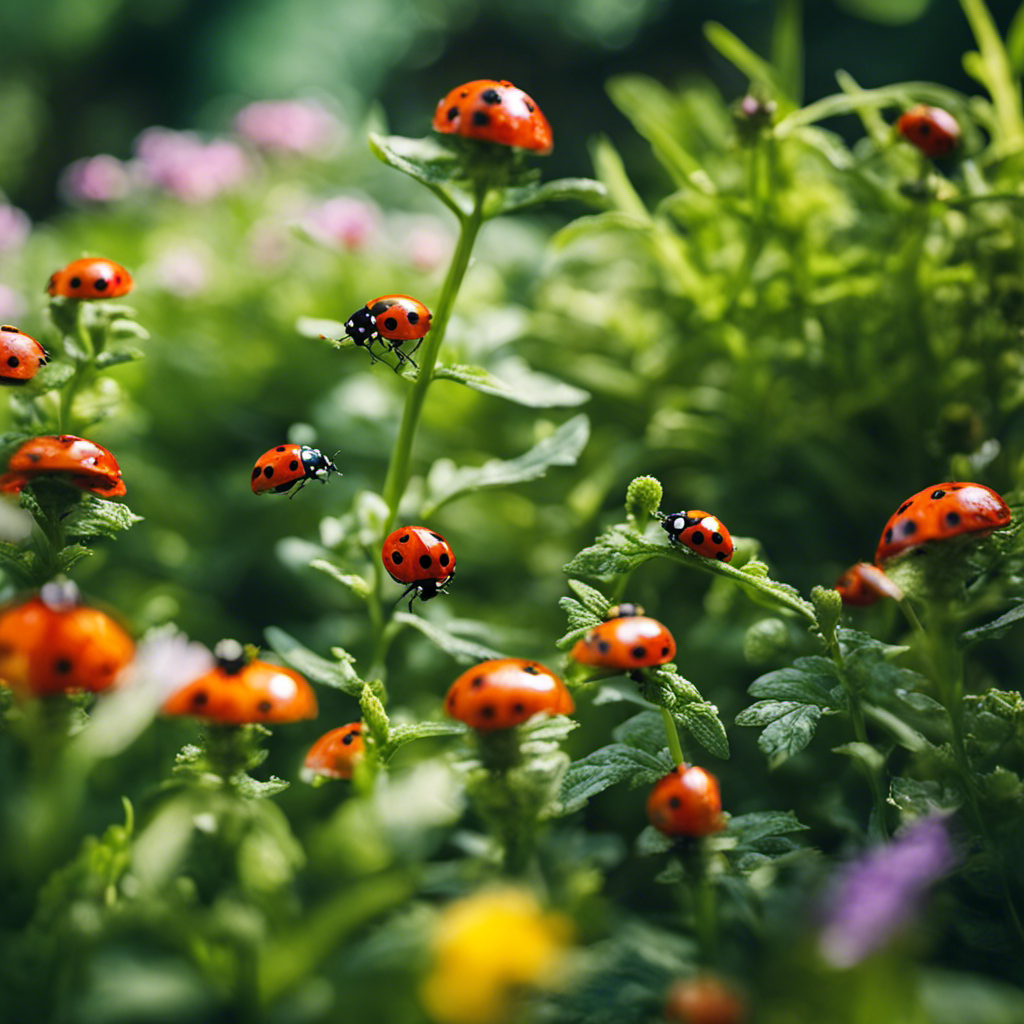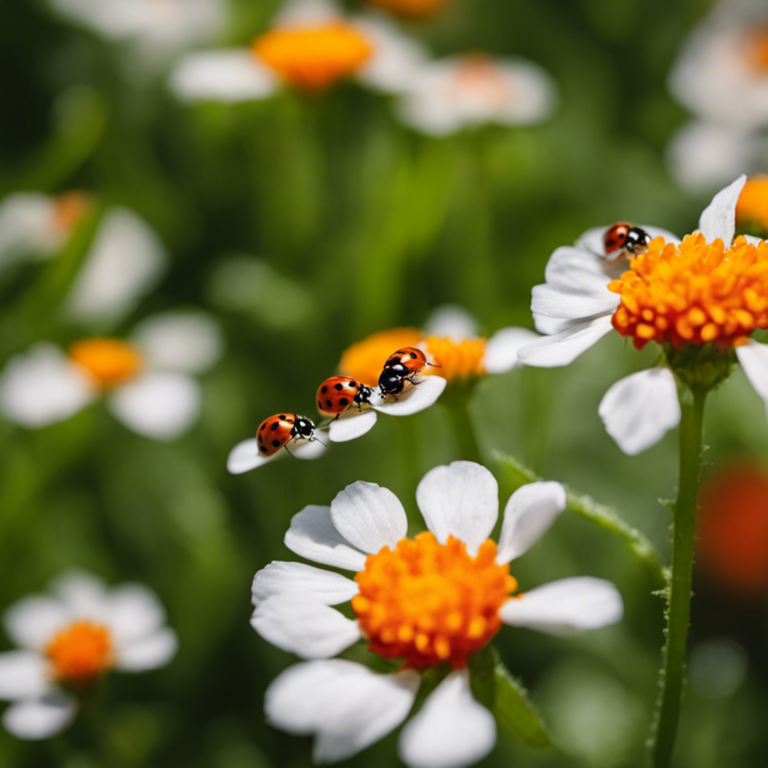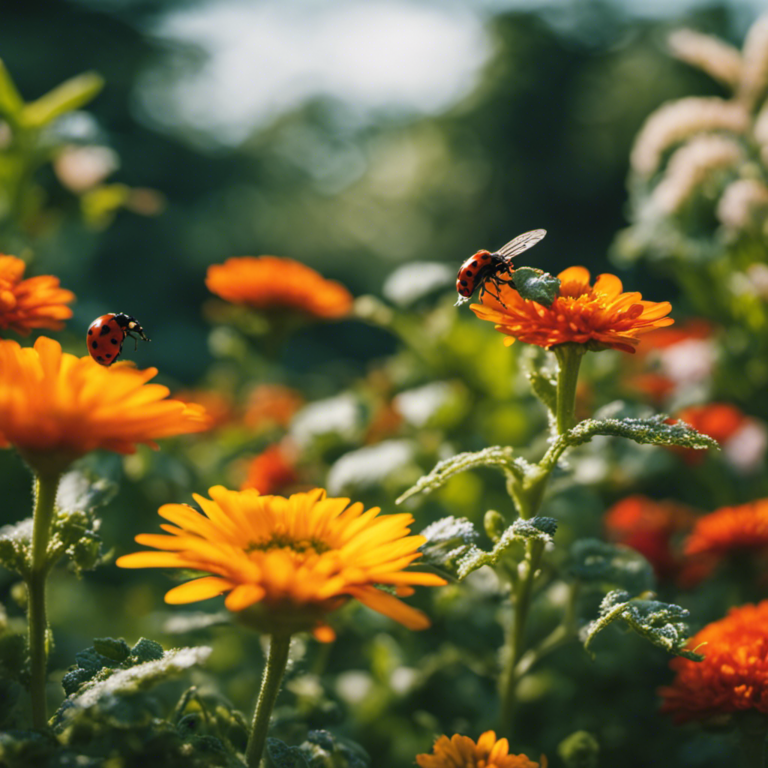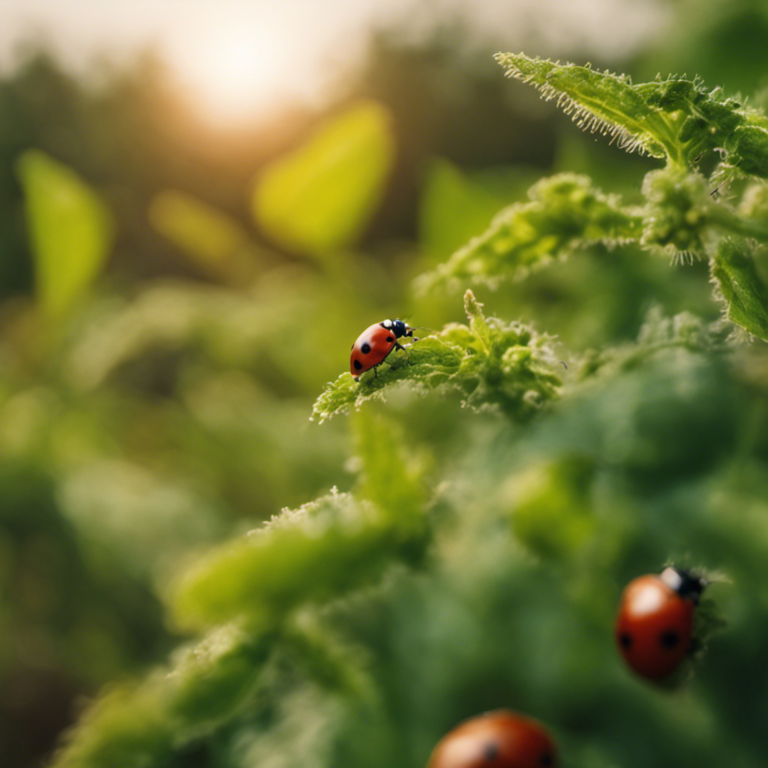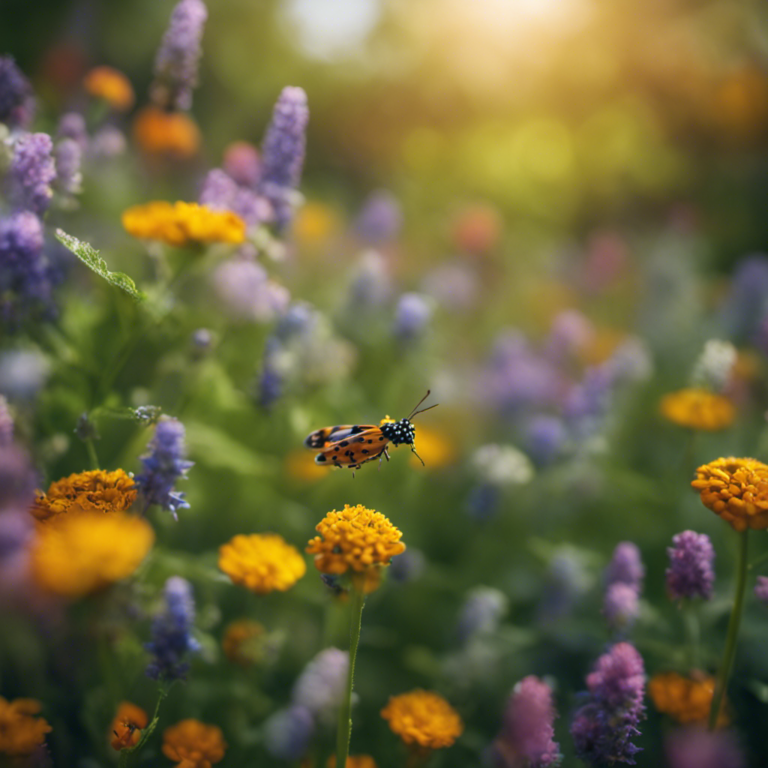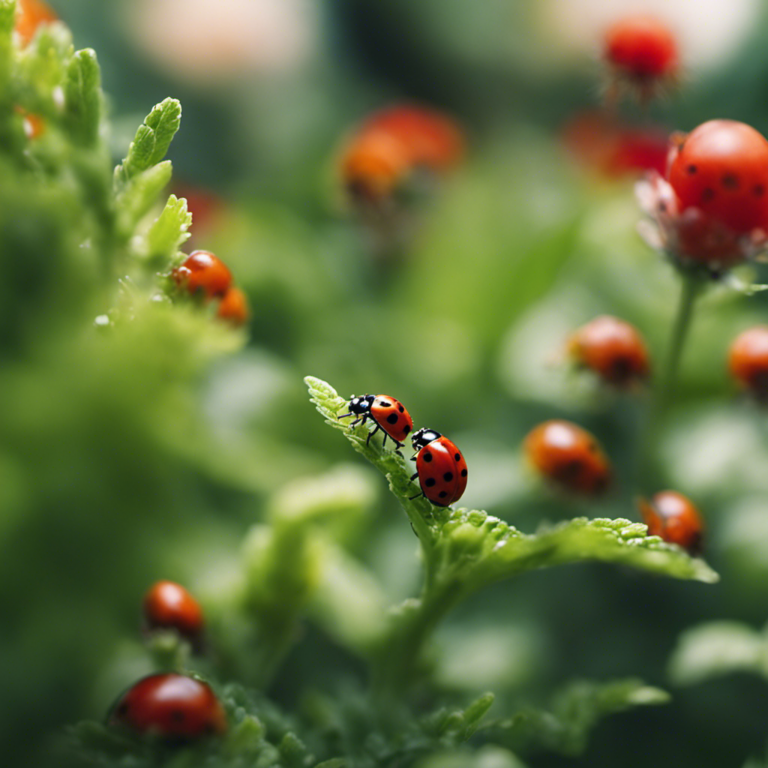Are annoying bugs causing trouble in your organic garden? Don’t fret, because there are natural ways to banish them!
In this article, we will reveal the secrets of organic gardens and provide you with effective methods to control pests without harming the environment.
You might wonder if these organic solutions really work. Well, prepare to be pleasantly surprised! With these practical and eco-friendly techniques, you will learn how to protect your garden and nurture a thriving organic oasis.
Bid farewell to pests and welcome a flourishing organic garden!
Key Takeaways
Banishing bugs naturally in your organic garden is not only environmentally friendly but also practical and effective. By implementing essential organic pest control methods, using natural solutions and pest-repelling plants, and creating homemade remedies, you can successfully combat garden pests without relying on harmful chemicals.
By embracing sustainable strategies, you can enjoy the rewards of a thriving, bug-free garden. So, get ready to put your green thumb to work and savor the natural beauty of your garden without the intrusion of pests.
Happy gardening!
Essential Organic Pest Control Methods
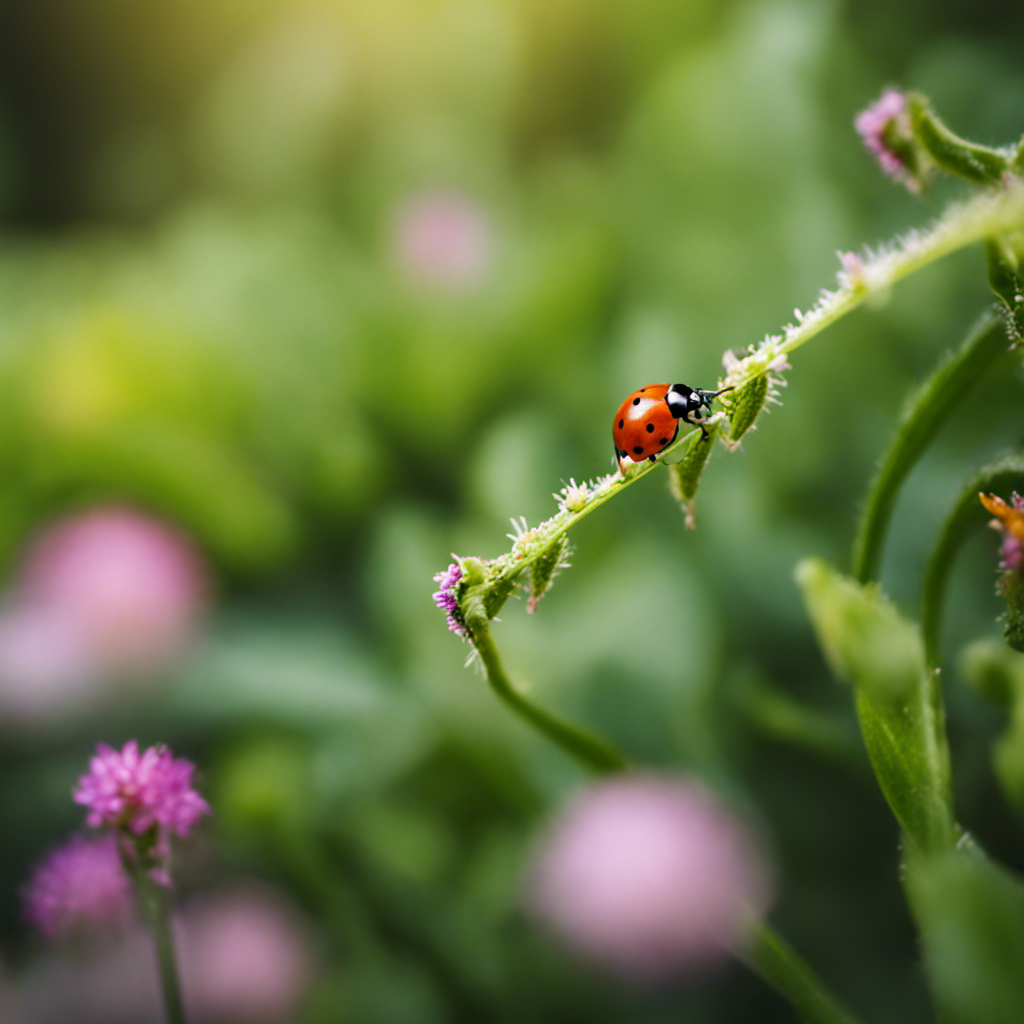
To effectively control pests in your organic garden, it’s important to incorporate essential organic pest control methods.
One of the key principles of organic gardening is to avoid using synthetic pesticides and herbicides. By doing so, you not only protect the health of your plants but also the environment.
Instead, focus on attracting beneficial insects to your garden. Natural predators like ladybugs, lacewings, and praying mantises can help control aphids, mites, and other harmful pests. To invite these helpful insects, consider planting a variety of flowers and herbs such as marigolds, daisies, and fennel that attract them.
Additionally, creating habitats like birdhouses and water sources can attract birds and frogs, which also play a role in pest control.
Natural Solutions for Garden Pests
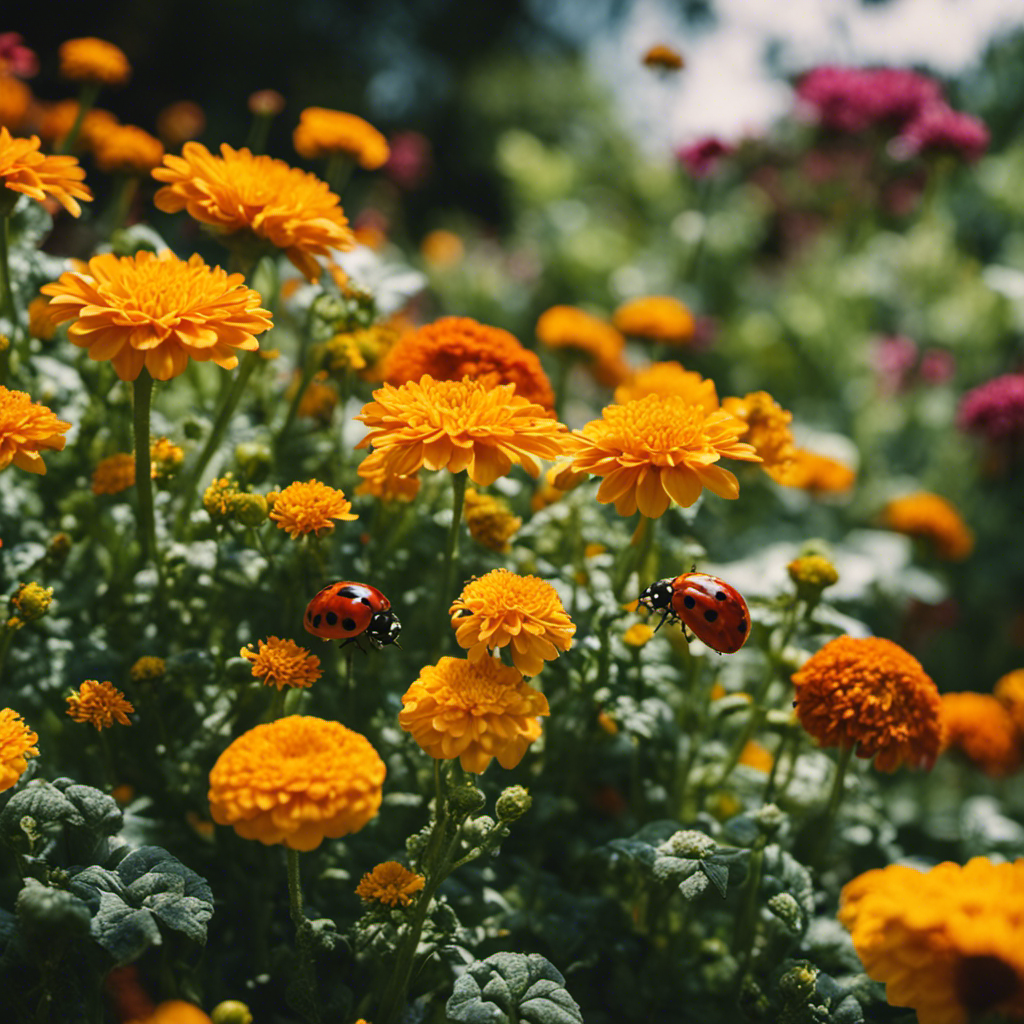
Natural Solutions for Garden Pests
Combat garden pests in your organic garden using natural methods. Here are three effective strategies to protect your plants and promote a healthy garden ecosystem:
-
Companion planting: Planting certain crops strategically can naturally repel pests and create a harmonious garden. For instance, marigolds planted alongside tomatoes can deter nematodes and other harmful insects.
-
Beneficial insects: Attract nature’s pest controllers by growing flowers and herbs that invite beneficial insects such as ladybugs, lacewings, and hoverflies. These insects feed on pests like aphids and caterpillars, helping to keep their populations in check.
-
Homemade sprays: Create your own natural insect repellents using ingredients like garlic, neem oil, or soap. These sprays can be applied directly to plants to deter pests without harming beneficial insects or pollinators.
Pest-Repelling Plants for Organic Gardens
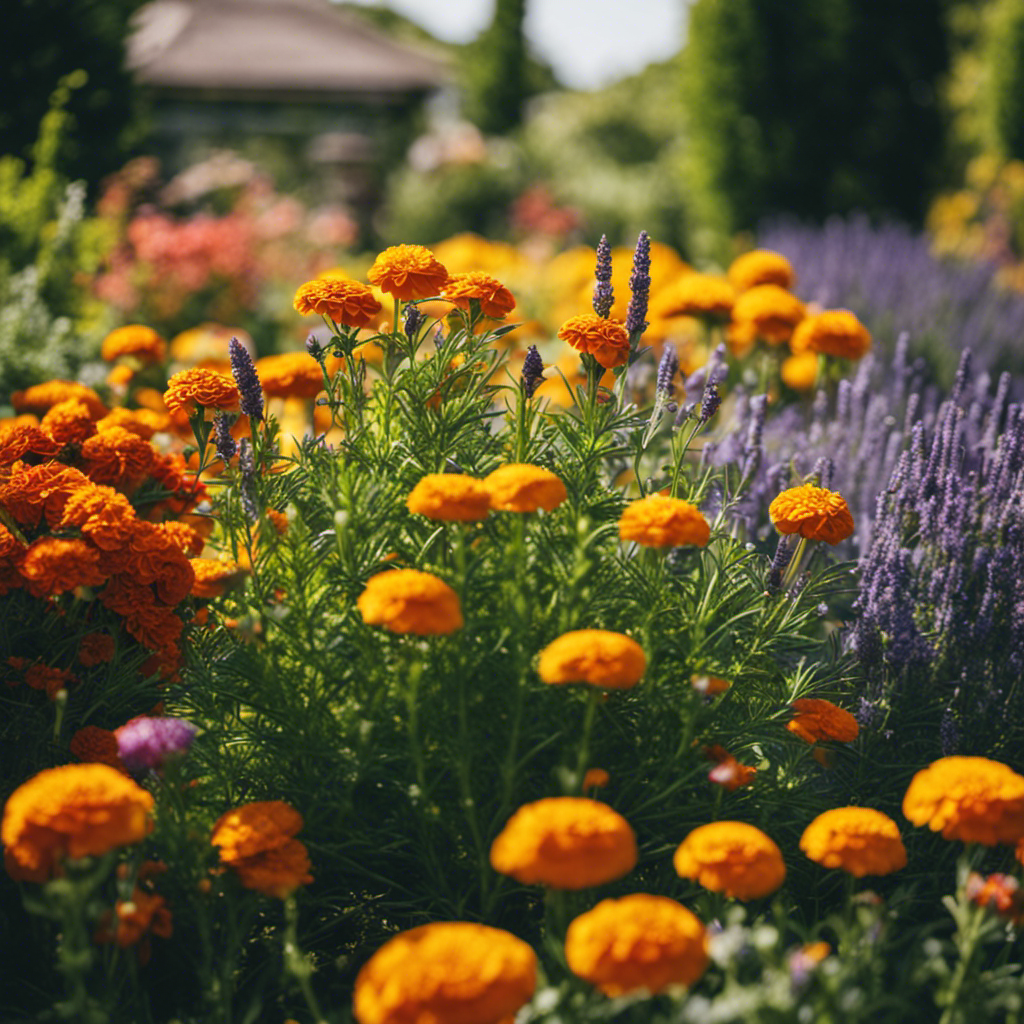
Protect your organic garden from pests by incorporating plants that naturally repel pests into your garden design. Companion planting is a technique that involves planting certain plants together to discourage pests. For example, marigolds are known to deter aphids, nematodes, and whiteflies, making them an excellent companion for vegetables such as tomatoes and peppers.
Another effective pest-repelling plant is lavender, which not only adds beauty to your garden but also repels mosquitoes, moths, and fleas. Additionally, planting herbs like basil, mint, and rosemary can deter pests like aphids and flies while attracting beneficial insects like ladybugs and bees.
Homemade Remedies for Organic Pest Control
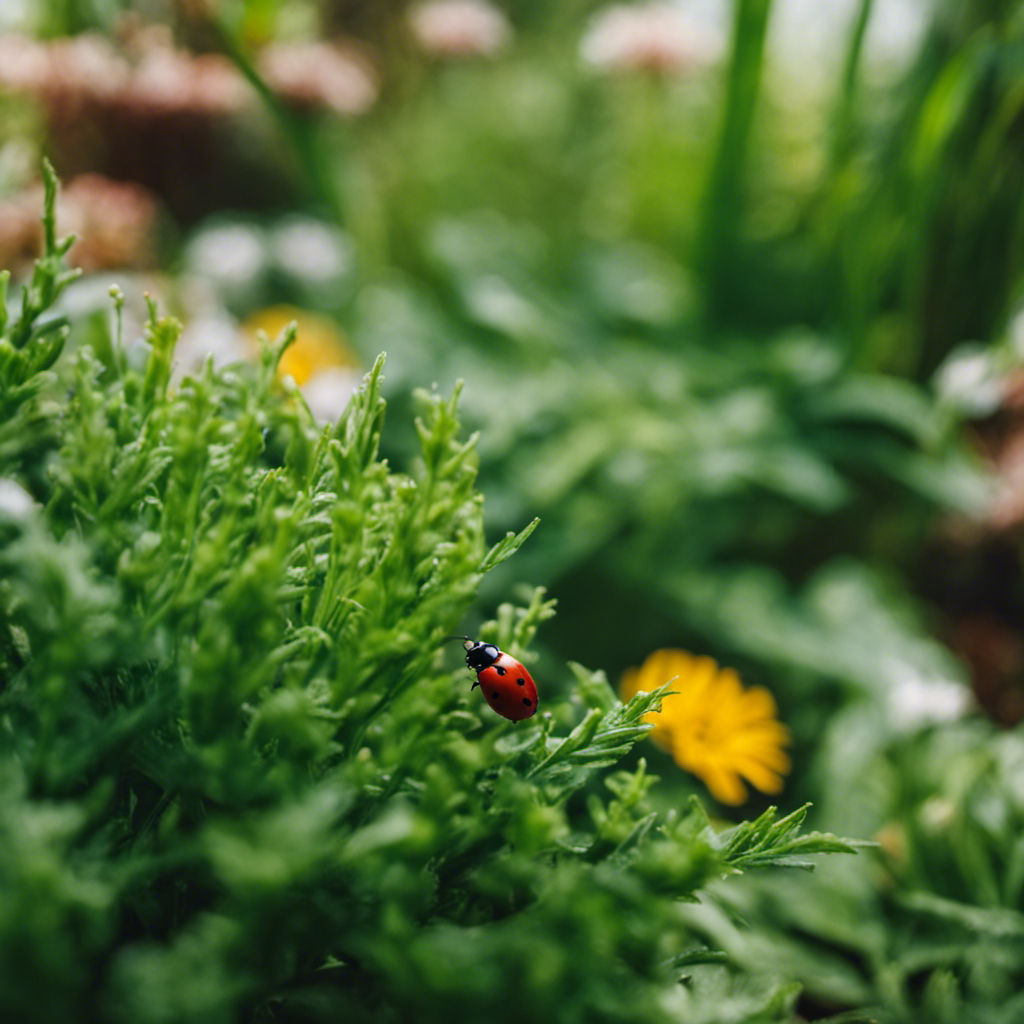
Protect your organic garden from pests using homemade remedies for organic pest control. These DIY pest deterrents are effective and safe for both your plants and the environment.
Here are three simple solutions you can make at home to keep pests away:
-
Garlic Spray: Crush a few cloves of garlic and mix them with water. Let the mixture sit overnight, then strain it and add a few drops of dish soap. Use this solution to spray on your plants and deter pests like aphids, mites, and other insects.
-
Neem Oil: Mix neem oil with water and a few drops of dish soap. This natural insecticide works well against various pests, including caterpillars, beetles, and leafhoppers.
-
Vinegar Solution: Create a mixture of equal parts water and white vinegar. Spray this solution on your plants to repel ants, slugs, and snails.
Sustainable Strategies to Combat Garden Pests
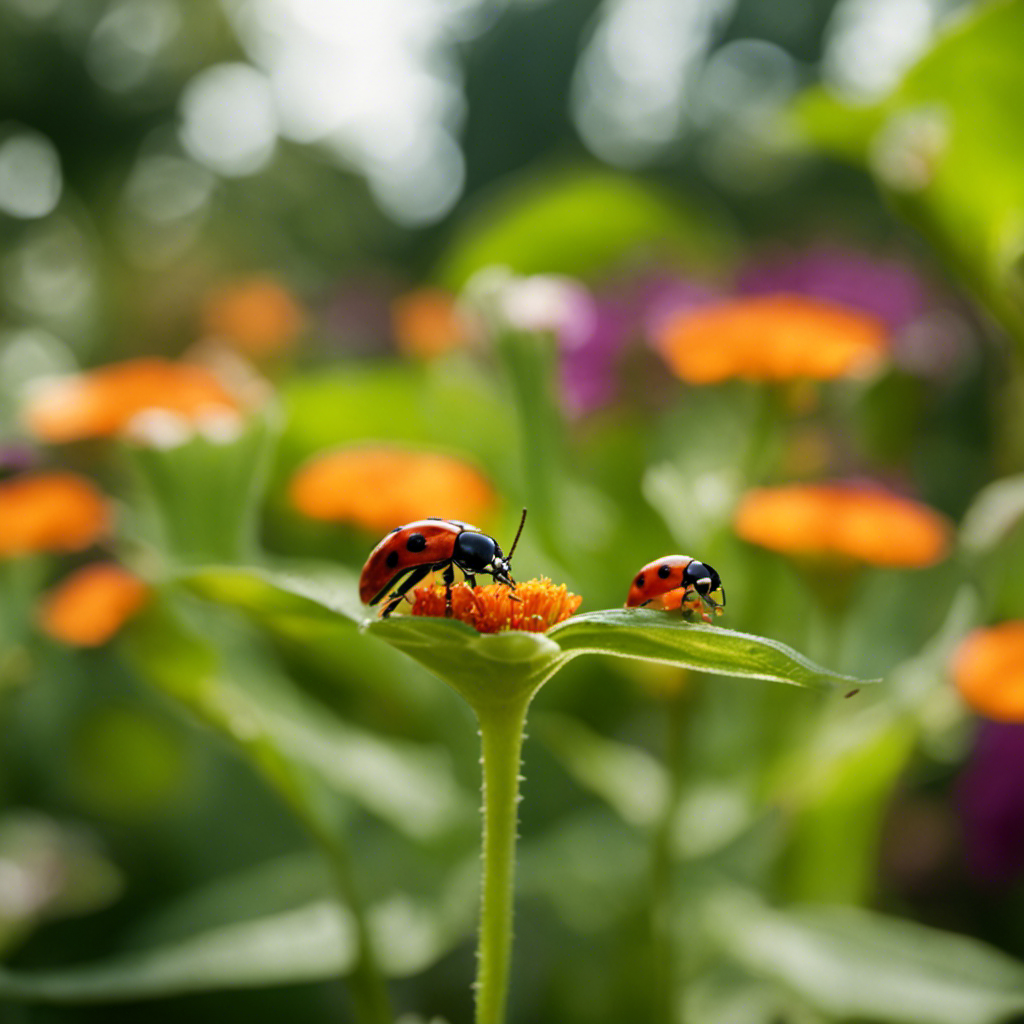
Implementing sustainable strategies is crucial for effectively combating garden pests in your organic garden. One of the most effective methods is biological control, which involves using natural predators to keep pest populations in check. Introducing beneficial insects like ladybugs, lacewings, and praying mantises can help control aphids, caterpillars, and other common pests. These insects feed on the pests, reducing their numbers naturally.
Another sustainable strategy is companion planting. By growing certain plants together, you can create a natural pest-repellent environment. For example, planting marigolds alongside your vegetables can deter aphids, nematodes, and other harmful insects. Similarly, planting herbs like basil, mint, or rosemary can repel pests due to their strong scents.
Conclusion
Banishing bugs naturally in your organic garden isn’t only environmentally friendly but also practical and effective. By implementing essential organic pest control methods, using natural solutions and pest-repelling plants, and creating homemade remedies, you can successfully combat garden pests without relying on harmful chemicals.
Embracing sustainable strategies will allow you to enjoy the rewards of a thriving, bug-free garden. So, get ready to put your green thumb to work and enjoy the natural beauty of your garden without the intrusion of pests.
Happy gardening!
